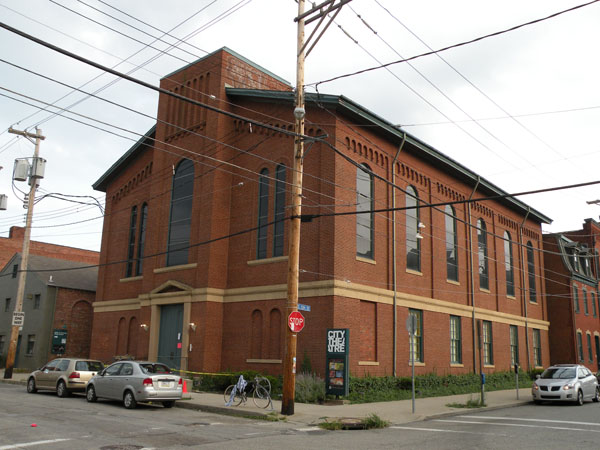
Production History
Click Here to view City Theatre’s Full Production History
2020-Present
While facing an unknown future and indeterminate hardships associated with the 2020 Covid-19 pandemic, the City Theatre staff found new and creative ways to engage their patrons both virtually and in-person. With the success of the Drive-In at Hazelwood Green, City Theatre was the first performing arts organization in Pittsburgh to mount live performances and in doing so were named People of the Year by Pittsburgh City Paper. After many virtual performances throughout 2020-2021, City Theatre returned to their south side stage in October 2021, welcoming back masked and vaxxed audiences.
2010-2020
With four decades of experience, the company continues to produce contemporary plays that are always brand new to Pittsburgh audiences. From Patrick Barlow’s madcap adaptation of Hitchcock’s The 39 Steps to the music-filled world premiere of Daniel Beaty’s Breath & Imagination, City Theatre has staged a range of theatrical worlds in recent seasons.
2000-2009
The new millennium set the scene for City Theatre’s next era of artistic direction. Tracy Brigden was hired in 2001, following Marc Masterson’s move to Actors Theatre of Louisville. Previously at Hartford Stage, Tracy brought to City Theatre her innovation and commitment to new work, commissioning world premieres and developing plays by a leading generation of diverse writers. Decade highlights include the creation of MOMENTUM, City Theatre’s annual festival of new plays at different stages, and David Harrower’s Blackbird, a popular and critical success directed by Stuart Carden.
1990-1999
The 1990s ushered in a new beginning on Pittsburgh’s South Side. Following a separation from the University of Pittsburgh in 1987, City Theatre became an independent, not-for-profit performing arts organization and acquired its own campus, the former Bingham United Methodist Church — City Theatre’s current location. In 1991, after extensive renovations to the building, the company opened its doors and commenced a new chapter with Bricklayers by Elvira DiPaolo, the first production in the Mainstage Theatre.
1980-1989
The early 1980s marked the arrival of Marc Masterson, City Theatre’s Artistic Director for nearly twenty years. Under Marc’s leadership, the company inaugurated its former 115-seat performance space on Bouquet Street in Oakland with Sam Shepard’s Curse of the Starving Class. Performances throughout the decade in the small black box theatre solidified the company’s reputation for producing imaginative, contemporary American works.
1975-1979
Founded in 1975, City Theatre began as the City Players, a touring company that performed in schools, parks, and housing projects. By the end of the decade, the City Players were offered residency at the University of Pittsburgh, and, with an official home, City Theatre was born. Early productions include Jewel Walker’s Tuesday and The Circus and David Mamet’s Sexual Perversity in Chicago.
